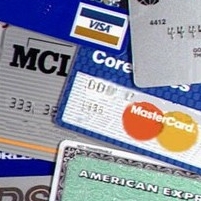Federal Reserve Proposes Protecting Credit Card Users from Excessive Fees and Penalties

In compliance with the reform legislation adopted last year by Congress, the Federal Reserve board is proposing new rules to limit credit card issuers from unloading “unreasonable” late payments on consumers and hiking interest rates. Fed officials said they intend to prevent banks and other lenders from levying large penalties for minor mistakes by customers. Specifically, banks will no longer be allowed to charge a late fee that is greater than the minimum payment that was missed. For example, if a credit card user does not pay on time the minimum payment of $20, the bank will not be allowed to add a penalty in excess of $20. In addition, if a consumer exceeds a credit limit by say, $5, the bank will not be allowed to charge a penalty of more than $5.
- Top Stories
- Unusual News
- Where is the Money Going?
- Controversies
- U.S. and the World
- Appointments and Resignations
- Latest News
- Trump Orders ICE and Border Patrol to Kill More Protestors
- Trump Renames National Football League National Trump League
- Trump to Stop Deportations If…
- Trump Denounces World Series
- What If China Invaded the United States?






Comments